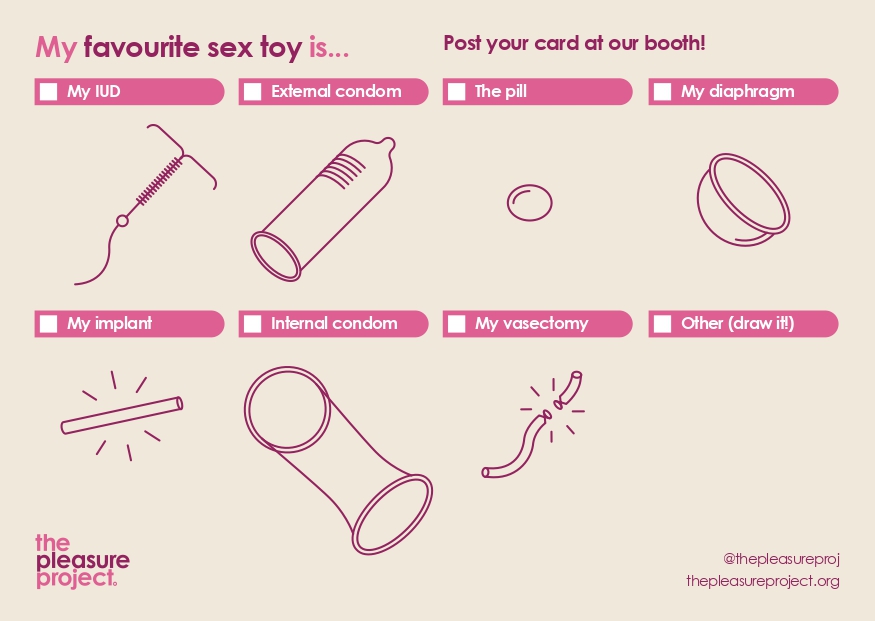Related
Read our latest articles, studies and columns on sexual health and rights.
When we say pleasure, what do you think of? Do you think about eating your chocolate on Valentine’s day? What did it taste like, what does it remind you of, and why is this particular chocolate your favourite? When it comes to food, most people will find this question easy to answer, but when it comes to sexual experiences, why is it suddenly so hard to talk about pleasure?
By Aly Albertson (Rutgers) and Elena Ascione (The Pleasure Project)
The Pleasure Project and Rutgers believe that if we can talk openly about sexual pleasure and sexuality, we better understand experiences of sex and how pleasure affects attitudes, values, and responses to others. This will profoundly change how organisations, communities, and individuals think about sexual health and rights (SRHR) and comprehensive sexuality education (CSE).
“We think it is time to show why safer sex and good sex aren't mutually exclusive ”Safer sex can be sexy, and here's why

Integrating pleasure into SRHR programmes has the potential to positively impact and present young people with information that is relevant to their curiosities and experiences. If we’re being realistic, one of the main reasons people engage in sexual activities is because it feels good, and people deserve to know how that applies to their SRHR too! This main motivational factor for sexual activities is why we need to get pleasure on the SRHR agenda.
Luckily, recently there has been more and more interest and investment in discussing pleasure in SRHR internationally. Pleasure is on the agenda and is being seen as a subject worth considering in programming, advocacy, and research [1]. Despite this positive shift towards pleasure, CSE is rarely sexy and erotica is rarely safe.

In February 2022, The Pleasure Project and the World Health Organization jointly published a systematic review answering that very question for the first time.
The study found that prioritising pleasure rather than the fear and dangers of sex increases the likelihood of safer sex.
Additionally, it found that sexual health programmes that include sexual desire and sexual pleasure improve knowledge and attitudes around sex and increase condom use compared to those that do not.
Despite the clear importance of pleasure to sexual well-being and health, many CSE programmes and SRHR interventions, whether in content or language, remain rooted in risks and fears of sexuality. Bearing in mind the growing evidence that risk-based CSE can have harmful, often exclusionary and stigmatising effects on youth sexuality, pleasure-based education offers a promising educational tool that organisations like The Pleasure Project and Rutgers are leading the charge in [2].

A fundamental part of furthering a pleasure-based approach to SRHR and CSE has been developing and applying The Pleasure Principles.
The Pleasure Principles are a set of ideas developed by The Pleasure Project that use inclusive language framed around human rights to link pleasurable lived sexual experiences with robust scientific data.
Rutgers endorses The Pleasure Principles and commits to conducting research that leads to evidence around pleasure-based sexual health as well as ensuring that their communication materials and marketing strategies are inclusive, respectful, and rights-based.
It is time that the public health sector got inspired by new and pleasure-centred strategies; it is also crucial that at this moment, young people globally find partners that stand with them at the forefront and represent what they want and need to know. Together, we create innovative and courageous ways to prioritise pleasure in the international SRHR community.
“Let’s ride the pleasure wave together.”
Read our latest articles, studies and columns on sexual health and rights.
Uw browser (Internet Explorer 11) is verouderd en wordt niet meer ondersteund. Hierdoor werkt deze website mogelijk niet juist. Installeer Google Chrome of update uw browser voor meer internetveiligheid en een beter weergave.